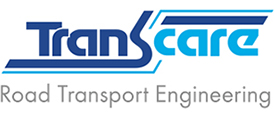So: you want to become a fleet manager. Fleet management is a rewarding career with regular challenges to overcome and plenty of responsibility against a backdrop of ever-changing conditions. But if you’re not sure how to get into this career path, in this blog we’ll take you through some of the most common routes, as well as what you need to succeed in a fleet management role.
What Does a Fleet Manager Do?
A fleet manager’s purpose is to maximise the efficiency and profitability of the vehicles used by a company and the drivers who operate them. They are typically responsible for choosing the type and amount of vehicles to lease or purchase, maintaining them, scheduling their use, keeping records and logging drivers’ routes. They will also monitor the fleet’s financial performance.
What Skills Do They Need?
There are a number of essential skills that you’ll need to be considered for a fleet management position.
- Multi-tasking: With such a diverse range of responsibilities, it’s essential that fleet managers can switch between multiple tasks quickly and easily.
- Adaptability: The transport world is subject to a continual influx of new legislation and technologies, as well as plenty of political upheaval (take Brexit, for example). Fleet managers must be aware of how these changes can impact their fleet and adapt accordingly.
- Communication skills: It’ll be your job to communicate any internal and external changes to keep drivers informed. Choosing the most appropriate communication channels and delivering messages clearly is essential.
- Leadership skills: You need to be able to inspire confidence and trust in your team, as well as solve problems and make tough decisions, so the ability to be a strong leader is also necessary.
What are the Potential Career Paths Into Fleet Management?
The good news is that there is no set pathway into becoming a fleet manager, meaning provided that you have the right skills and experience, your background can be flexible. Having said that, here are a couple of the most common routes that prospective fleet managers take.
The School Route
If you’re a school leaver looking to become a fleet manager, there are several further or higher education courses that could help you reach your goal. BTECs, HNDs and degrees in subjects like logistics and transport management could be a great first step. Training from the Chartered Institute of Procurement and Supply (CIPS) would also provide a good foundation for this career path.
The Work Route
The more well-trodden route of the two is vocational training and experience gained at junior levels of an organisation before progressing into a fleet manager role. Apprenticeships are strong entryways into this kind of career that offer on the job training with a salary. Alternatively, you could apply for entry level jobs in the industry, and progress up the ranks whilst taking industry-specific qualifications.
Commercial Fleet Maintenance & Truck Repair
As a leading fleet management company, Transcare knows what it takes to make a successful career in this industry. Our comprehensive range of lorry maintenance and truck repair services make managing a commercial fleet an absolute breeze. For more information about what we do, please get in touch with us today.








